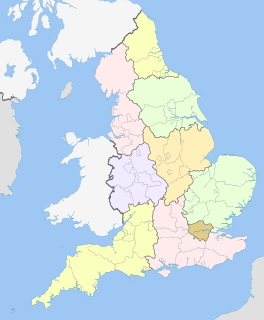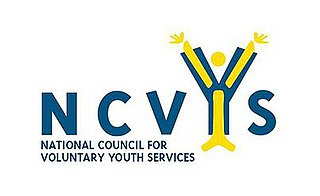Background
The issue of procurement was particularly important in South Yorkshire as many mainstream funding opportunities were diminishing with the end of the Single Regeneration Budget (SRB) and the European Union's expansion leading to a decrease in Objective 1 Structural funds.
Funding is the act of providing financial resources, usually in the form of money, or other values such as effort or time, to finance a need, program, and project, usually by an organization or company. Generally, this word is used when a firm uses its internal reserves to satisfy its necessity for cash, while the term financing is used when the firm acquires capital from external sources.

The European Union (EU) is a political and economic union of 28 member states that are located primarily in Europe. It has an area of 4,475,757 km2 (1,728,099 sq mi) and an estimated population of about 513 million. The EU has developed an internal single market through a standardised system of laws that apply in all member states in those matters, and only those matters, where members have agreed to act as one. EU policies aim to ensure the free movement of people, goods, services and capital within the internal market, enact legislation in justice and home affairs and maintain common policies on trade, agriculture, fisheries and regional development. For travel within the Schengen Area, passport controls have been abolished. A monetary union was established in 1999 and came into full force in 2002 and is composed of 19 EU member states which use the euro currency.
Sheffield City Council approved a report in April 2004 entitled A policy for the expansion of opportunities for social enterprises through public procurement and planning policies which outlined the council's ambition for a mixed economy of provision through procurement:

Sheffield City Council is the city council for the metropolitan borough of Sheffield in South Yorkshire, England. It consists of 84 councillors, elected to represent 28 wards, each with three councillors. It is currently under Labour control and led by Julie Dore.
"A thriving social enterprise sector in the city is also a mechanism for bringing excluded groups into the labour market, raising skill levels and increasing future employability, which in turn improves the quality of life for the individuals concerned and their families and helps to secure the sustainability of communities."
This built upon Central Government's The National Procurement Strategy for Local Government (2003) which spelt out that effective procurement would help local authorities to achieve their Community/City Plan objectives.

In the United Kingdom, regional development agencies (RDAs) were nine non-departmental public bodies established for the purpose of development, primarily economic, of England's Government Office regions between 1998 and 2010. There was one RDA for each of the NUTS level 1 regions of England. Similar activities were carried out in Wales by the Welsh Government Department of Economy and Transport, in Northern Ireland by the Department of Enterprise, Trade and Investment and in Scotland by Scottish Enterprise and Highlands and Islands Enterprise.
The social economy is formed by a rich diversity of enterprises and organisations, such as cooperatives, mutuals, associations, foundations, social enterprises and paritarian institutions, sharing common values and features:
The Transform Drug Policy Foundation (Transform) is a registered non-profit charity based in the United Kingdom working in the field of drug policy and law reform.
The Deputy Minister for Enterprise and Lifelong Learning in Scotland was a cabinet position in the devolved Scottish Government. The position was created in 1999, with the advent of devolution and the institution of the Scottish Parliament, taking over some of the roles and functions of the former Scottish Office that existed prior to 1999.
Development trusts are organisations operating in the United Kingdom that are:
Procurement is the process of finding, acquiring, buying goods, services or works from an external source, often via a tendering or competitive bidding process. The process is used to ensure the buyer receives goods, services or works the best possible price, when aspects such as quality, quantity, time, and location are compared. Procurement is considered sustainable when organizations broadens this framework by meeting their needs for goods, services, works, and utilities in a way that achieves value for money and promotes positive outcomes not only for the organization itself but for the economy, environment, and society. This framework is also known as the triple bottom line.

Government procurement or public procurement is the procurement of goods, services and construction on behalf of a public authority, such as a government agency. With 10 to 20% of GDP, government procurement accounts for a substantial part of the global economy.
Northern Ireland Council for Voluntary Action is the national infrastructure body for the voluntary and community sector in Northern Ireland. NICVA also hosts and manages several websites for Northern Ireland's voluntary and community sector online.
The South Yorkshire e-learning Programme (SYeLP), branded as ‘e-sy.info’, was established in 2001. It is a partnership of four local authorities in South Yorkshire: Barnsley Metropolitan Borough Council, Doncaster Metropolitan Borough Council, Rotherham Metropolitan Borough Council and Sheffield City Council, with support from Yorkshire Forward and the LSC. Established as a European Union (EU) Objective 1-funded project, it began with an initial feasibility study, followed by a pilot phase in 2001/2002 and roll-out of the main programme from 2003 onwards. The programme’s vision is: to contribute to economic regeneration in the South Yorkshire region and support the growth of information and knowledge-based industries through developing the digital skills of the current and future workforce; to harness the potential of digital technology to support learning for all ages 10 and above, in schools, colleges, businesses and the community.
The Coalfields Regeneration Trust is a registered charity that works across the former Coalfield communities of England, Wales and Scotland. The Charity was founded in 1999.
The Coalfields Regeneration Trust receives funding from the Department of Communities and Local Government for their work in English communities, The Welsh Government for their Welsh activities and the Scottish Government to cover their Scottish work.
The Trust runs a number of initiatives and activities that make things happen at a community level in Coalfield areas. Each Country sets its own strategic objectives in line with local priorities.
Forward Commitment Procurement (FCP) is a procurement model that is designed to be used to deliver cost effective environmental products and services to the public sector and help to create the market conditions in which the environmental goods and services sector can thrive.

Sheffield Community Transport (SCT) is a non-governmental organisation with charitable status which provides transport services in Sheffield. Funding from SPT comes from South Yorkshire Passenger Transport Executive (SYPTE), Sheffield City Council, South Yorkshire Objective 1 programme, Yorkshire Forward, Coalfields Regeneration Trust and others.
Local Economic Development (LED) is an approach to economic development, of note in the developing world that, as its name implies, places importance on activities in and by cities, districts and regions. This involves added micro-economic measures at the local level to complement macro-economic measures at the national level. LED encompasses a range of disciplines including physical planning, economics and marketing, all with the goal of building up the economic capacity of a local area to improve its economic future and the quality of life for all.
Public Contracts Scotland is the national advertising website for Scottish public sector organisations to post Official Journal of the European Union (OJEU) notices and low value contracts commonly known as sub-threshold notices on the website and make subsequent awards. It also allows contracting authorities to invite suppliers to submit quotations electronically via the website’s secure tender postbox. Public Contracts Scotland was launched by John Swinney MSP, Cabinet Secretary for Finance and Sustainable Growth, at the National Procurement conference in October 2008.
GeBIZ is a Government-to-business (G2B) Public eProcurement business centre where suppliers can conduct electronic commerce with the Singapore Government. All of the public sector's invitations for quotations and tenders are posted on GeBIZ. Suppliers can search for government procurement opportunities, retrieve relevant procurement documentations and submit their bids online.

The National Council for Voluntary Youth Services (NCVYS) was a membership network of over 200 voluntary and community organisations, as well as local and regional networks, that work with and for young people across England. The organisation closed in 2016. For 80 years, NCVYS acted as an independent voice of the voluntary and community youth sector, working to inform and influence public policy, supporting members to improve the quality of their work, and also raising the profile of the voluntary and community sector's work with young people.

The Public Services Act 2012 is an Act of the Parliament of the United Kingdom. The Act calls for all public sector commissioning to factor in economic, social and environmental well-being in connection with public services contracts; and for connected purposes. It requires that all public bodies in England and Wales, including Local Authorities, and NHS organisations to consider how the services they commission and procure which are expected to cost more than the thresholds provided for in the Public Contracts Regulations might improve the social, economic and environmental well-being of the area. Third Sector organisations such as Social Enterprise UK pushed for the introduction of the legislation. In early drafts the Bill had a far greater focus on increasing public spending with social enterprises. The final text of the Act is focused on ensuring public spending leverages value in all three recognized domains or pillars of Sustainable Development, or the triple bottom line.

Social Investment Business (SIB) is a UK registered charity and trading company that offers loans, grants and other financial products to charities and social enterprises.
David F. Green is a British civil engineer. He spent much of his career in Sheffield where he became director of operational services for the city council. In this role he spearheaded a reform of the city's direct labour operations, driving down costs and enabling it to operate on a competitive level with the private sector. Green was elected president of the Institution of Civil Engineers for the 1996–97 session and sought for the body to have more influence over national policy. He was later chair of the Together Housing Group, a company providing social housing. Green was involved in the campaign for the introduction of new design standards for ship-to-shore walkways following the 1994 Prins Filip ferry walkway collapse that killed six people in Ramsgate.









